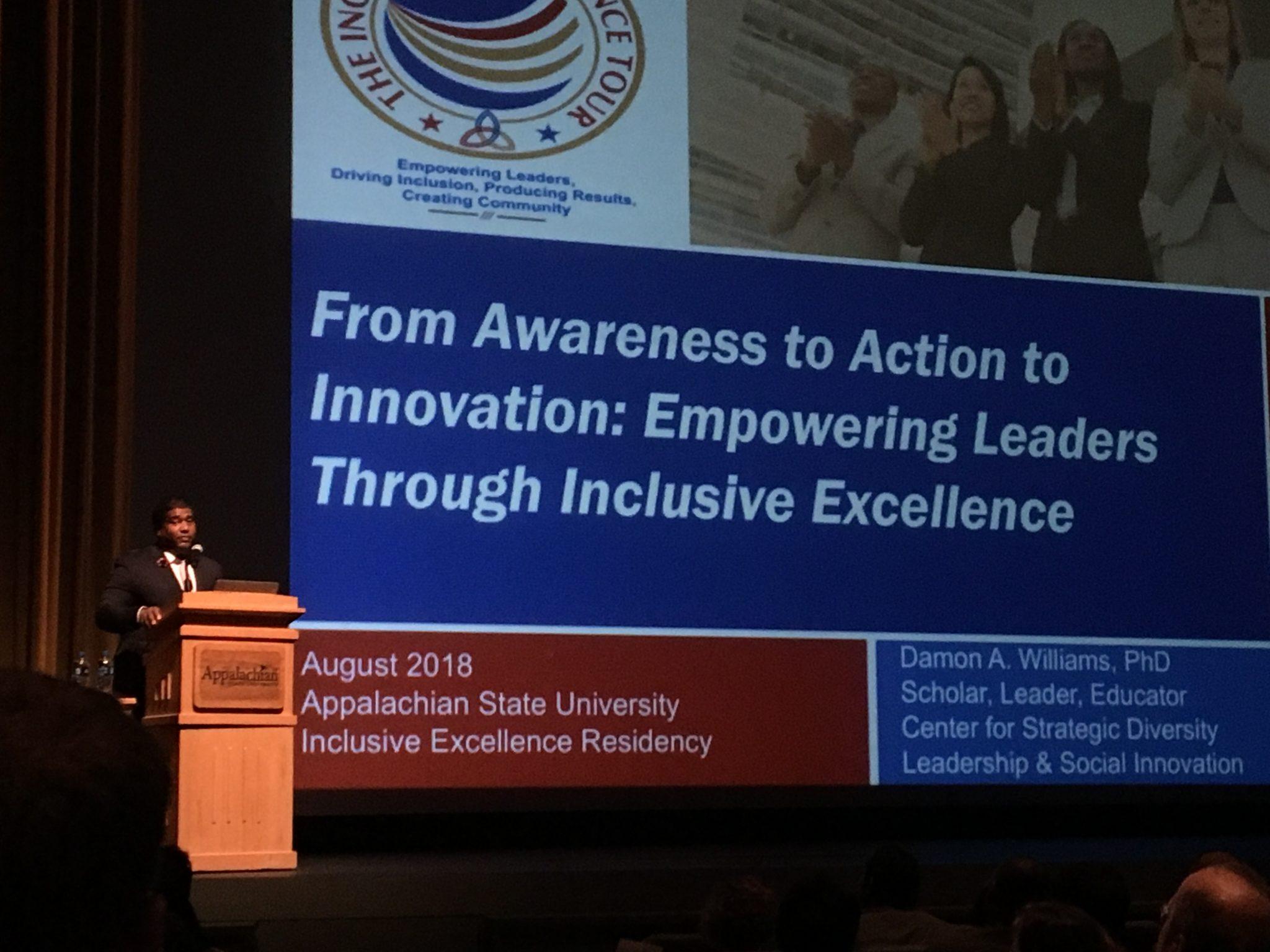The three-day residency for the Inclusive Excellence Tour at App State began Monday night with a TED Talks-style address at the Schaefer Center that addressed diversity, equity, inclusion and change.
“Innovators share in common several key qualities across sector,” Damon Williams, the leader of the Inclusive Excellence Tour, said.
These characteristics are questioning their work, finding solutions across boundaries, engaging others of the like, testing new ideas, taking ideas to scale and leading with courage, Williams said.
Williams addressed how issues of diversity are approached in a manner that results in a repetitive cycle, yet innovators don’t allow the “rate limiting factor” that Williams described as a lack of courage to keep them from sparking change.
“Why is there so much talk of change, but so few results?” Williams asked the audience.
Williams has a Ph.D. in organizational behavior and management from the University of Michigan and founded the Division of Diversity, Equity and Educational Achievement at the University of Wisconsin-Madison, according to his bio.
The talk was just a singular part of the three-day national Inclusive Excellence Tour at App State. On the tour, Williams also talked to deans, associate deans, department chairs, assistant chairs, faculty and staff.
“We went out and we launched a national Inclusive Excellence Tour, and as we were moving around the country and engaging in residency moments, like the one that I’m having here at your great institution,” Williams said. “We were trying to help leaders and trying to spark innovation, trying to help folks level up in different types of ways.”
He said that the leaders of these universities were feeling a certain way because hate and disunity in our country is growing.
“The Inclusive Excellence model emerged in the wake of the Supreme Court decisions of Michigan that the Ford Foundation had funded a major national project to say, ‘how do we catalyze a broader system and conversation of change,’” Williams said. “And, in light of that, we were talking about a comprehensive organizational change effort and how do we start creating a more fundamental approach to change in the culture of our institutions.”
This required thinking about change in terms of the people it affects. The four dimensions of the model are: access and equity, preparing students for a diverse and global world, research and scholarship that takes place amongst faculty and scholarly community and a climate of inclusion, according to Williams.
We can apply this to our campus by continuing to provide opportunities that “increase our awareness and knowledge of diversity from an inclusive excellence framework,” the associate vice chancellor for student affairs, Leroy Wright, said in response to Williams’ presentation. “We need to continue affirming identities and building communities across all identities.”
Many students in the audience were fond of an analogy Williams made about institutional action that he referenced from his book, “Strategic Diversity Leadership.” He challenged institutions to act like wolves and be collaborative, collective and prepared, rather than like a cheetah and being crisis-driven.
The tour concluded on Wednesday with two talks to faculty and staff in the Plemmons Student Union.
Story and photo by: Rachel Greenland

